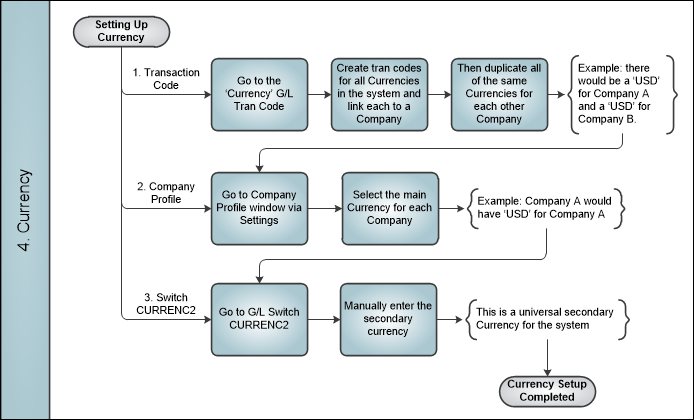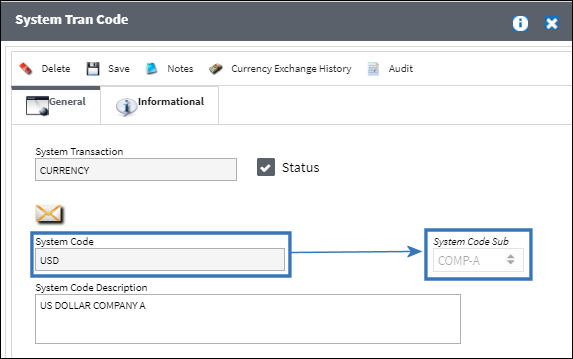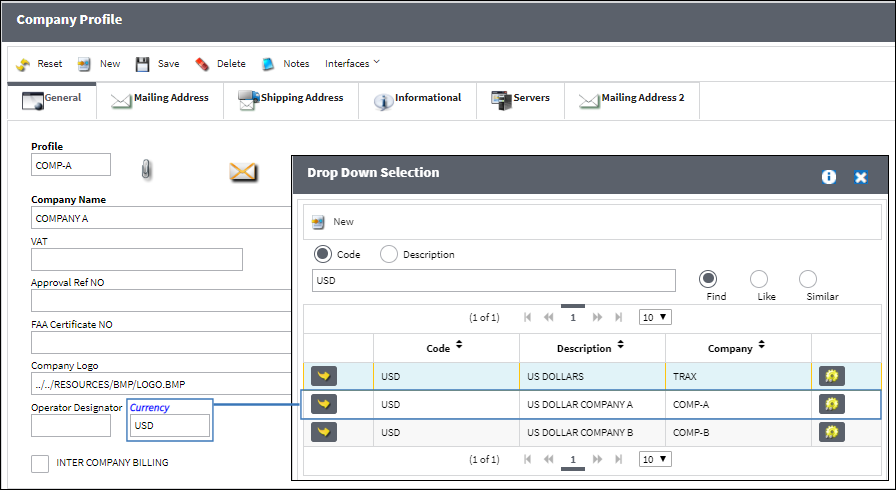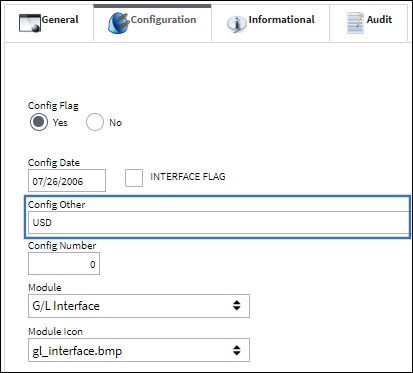
 Share
Share

 Print
Print
Multi Company Configurations: Currency
In order for the Multi Company functionality to correctly track the unique financial implications for each company in the system, the following Currency-related configurations must be made.
1. Currency Transaction Code
2. Currency field in Company Profile
3. G/L Switch CURRENC2

1. Currency Transaction Code
The currencies that are recognized throughout the system are created through the 'Currency' G/L Transaction Code. In this transaction code, each currency is configured with an Exchange Rate. This Exchange Rate is then used to calculate exchange rates against other currencies in the system. As part of the multi company functionality, each Company Profile must have their own unique sets of Currency transaction codes.
For each company's set of currencies, the Currency that will be the main currency for that company must have its Exchange Rate set to '1.0'. This default currency is specified in the Company Profile (see below) and will be used to calculate the exchange rates for that specific company.

For example, if there is a Company A and a Company B, there must be a 'USD' for Company A and a 'USD' for Company B.

The following is a scenario with multiple currencies for multiple companies. Each set of currencies must have a default currency set to Exchange Rate 1.0.
- Company A:
- EURO(A) - Exchange Rate 1.0 (default)
- USD(A) - Exchange Rate 1.12
- Company B:
- USD(B) - Exchange Rate 1.0 (default)
- EURO(B) - Exchange Rate 0.89
2. Currency field in Company Profile
Once the Currencies are set up, each Company in the Company Profile window must have a main currency defined. Each company must have one of the Currencies linked to their Company.
This Currency will act as the main currency for that Company and must be set to an Exchange Rate of '1.0' as a default (see above).

3. Switch CURRENC2
G/L switch CURRENC2 controls the Secondary Currency globally throughout the system. The Currency manually entered into the switch's Config Other field is recognized as the shared secondary currency for all Company Profiles.


 Share
Share

 Print
Print